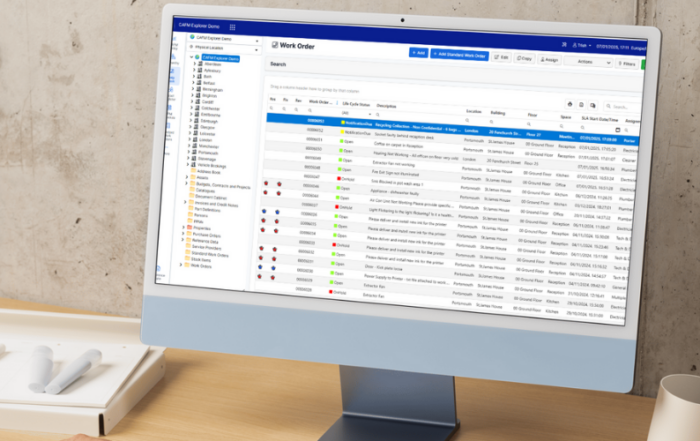Leveraging data to reverse the devastating decline in local authority planning staff
Post-COVID staffing issues remain headline news, but there is little doubt that some professions are more affected than others and local planning authorities (LPAs) are struggling to recruit the planning officers they need. But while staff recruitment and retention issues continue to be a challenge for councils, it is not the only problem.
The vast majority of planning departments still lack the quality of data required to maximise staff resources. From dashboards highlighting outstanding jobs, milestones and deadlines to detailed insight to support planning managers in better utilising existing resources and ensuring staff gain fair access to interesting work, there are enormous opportunities to make better use of data to improve efficiency, morale and, as a result, retention.
When the remaining LPA staff are under ever greater pressure due to both colleagues’ desertion and the constant addition of requirements from central government – from levelling up to biodiversity – it is absolutely vital to nurture existing talent. Scott Goodwin, Divisional Director Land, Property and Public Protection at Idox, explains how rapid access to easily consumed data can transform the efficiency of planning teams and, as a result, create a more positive, enjoyable working environment.
Persistent planning pressures
The level of staff exodus from LPAs is not sustainable. Research reveals that a quarter of planners left the public sector between 2013 and 2020, with the private sector enjoying an 80% increase in planners during the same time period. And with the government placing ever greater pressure on councils to ‘step up’ or face intervention following the failure to meet the annual target of 300,000 homes, morale in many departments is at an all-time low.
Despite the hugely complex and nuanced issues affecting the delivery of hundreds of thousands of new houses every year, it is planning staff that endure the brunt of continual negative comments from both the local press and central government. At the same time, they are being asked to add new, complex requirements to the planning process, from responding to the levelling up agenda (LuRA) to meeting biodiversity requirements (BNG) and incorporating sustainable drainage (SUDS). They have to achieve clearly defined targets within tight timelines and milestones – all with the knowledge that even if these goals are achieved, developers’ land banking strategies may result in just a fraction of the approved development being built.
Add in the enormous pressures facing local authority budgets given the well-publicised financial crisis affecting many councils and there is little leeway to counter the financial power of the private sector. So, how can LPAs retain existing talent and avoid further eradication of vital skills and knowledge?
Related posts
“Research reveals that a quarter of planners left the public sector between 2013 and 2020, with the private sector enjoying an 80% increase in planners during the same time period.”
Data-driven confidence to transform day-to-day processes
Constant criticism is not the only problem undermining LPA staff morale. Most planning teams still struggle to access the information required to make the most of existing staff and expertise. How many planners start their day with a dashboard highlighting outstanding jobs, milestones and deadlines? How many planning managers can seamlessly understand staff performance, skills and expertise to ensure resources are used effectively, and that staff gain equitable access to interesting work?
Most LPAs are awash with data, but an inability to view and interpret that data leads to time-consuming and inefficient processes. Teams are often overwhelmed by the sheer quantity and diversity of a data resource that could and should be supporting far more effective and enjoyable working environments.
Better access to up-to-date and easy-to-consume data can transform day-to-day processes for individuals throughout the planning system. For any individual planner, the ability to see at a glance the priority tasks and upcoming milestones and deadlines can support far more targeted activity. The insight can prompt timely conversations throughout the planning ecosystem, from colleagues to applicants and environmental consultants. By eradicating the fear of missing deadlines or milestones LPAs can immediately improve staff well-being, ensuring everyone feels more in control despite the enormous complexity of the day-to-day planning challenge.
Proactive staff support to improve retention
By ensuring deadlines and milestones are highly visible, the planning team can be far more confident in the timeliness of processes. Planning managers with full oversight can rapidly identify potential problems and intervene early to avoid a crisis occurring. This visibility not only reduces stress by ensuring workloads are understood but also avoids the risk of individuals keeping problems to themselves, which can lead to missed planning deadlines and a decline in staff morale that prompts a further exodus.
Indeed, providing managers with deep insight into every aspect of the process enables far more strategic resource management. Ensuring the right people do the right job is key to maximising existing skill sets and meeting goals, but it is also really important to avoid any individual cherry-picking the best jobs. Equitable access to work is a vital component of a healthy working environment. Enabling individuals to see potential opportunities, maximise existing skills and build new areas of expertise will not only help the LPA to better manage challenging deadlines but can also contribute to better overall morale.
Furthermore, managers can be proactive and identify if an individual is struggling. Simple steps such as providing additional support or training in a specific area, mentoring or advice from someone who has dealt with a similar situation before can avoid a crisis of confidence and reduce the chances of that individual deciding to leave.
“Investing in technology to support data-driven decision-making will not only improve day-to-day processes, support better resource management and underpin proactive career development, it will also demonstrate a commitment to staff.”
Conclusion
This is without any doubt a testing environment, but unless LPAs rapidly address the talent recruitment and retention challenge as staff leave to join the private sector, planning problems will only get worse. Investing in technology to support data-driven decision-making will not only improve day-to-day processes, support better resource management and underpin proactive career development, it will also demonstrate a commitment to staff.
By empowering professionals with the information required to do their best work, providing support when needed and ensuring equitable access to opportunities, an LPA can transform performance and morale at every level of the planning team. Furthermore, a cloud-based data platform provides the foundation for wider collaboration with colleagues across the country, enabling individuals to share their experiences of similar challenges. Fostering a supportive environment to ask questions, build relationships and rapidly propagate best practice will be key to building stronger, motivated planning teams within every LPA across the country.
Learn more
To maximise the benefit from your planning data, contact us to book a demo of Idox Insights, our new analytics platform.


